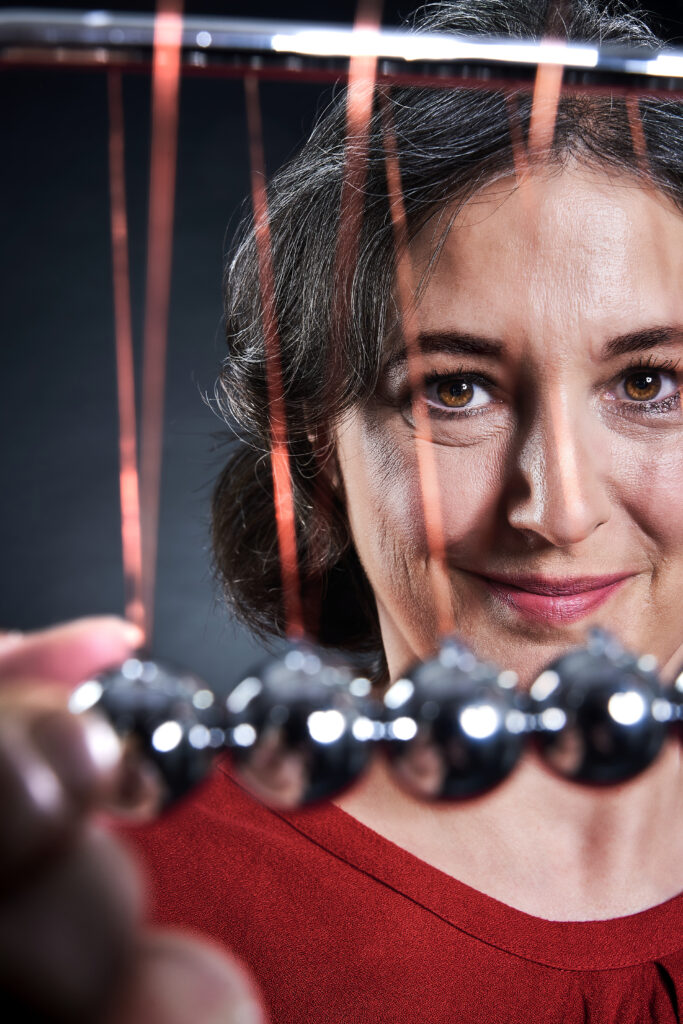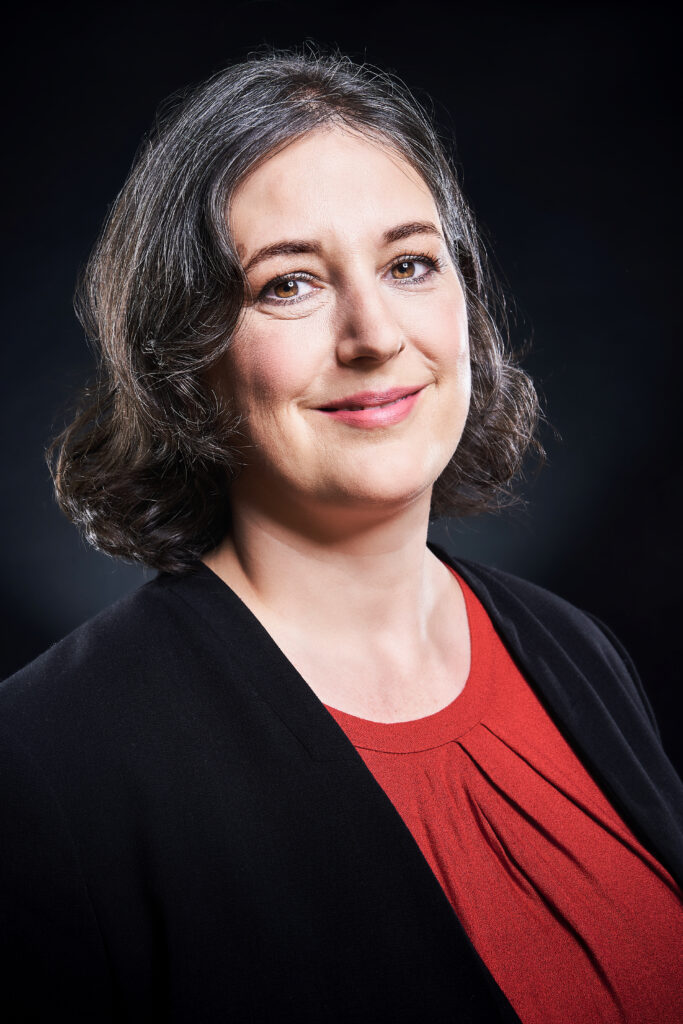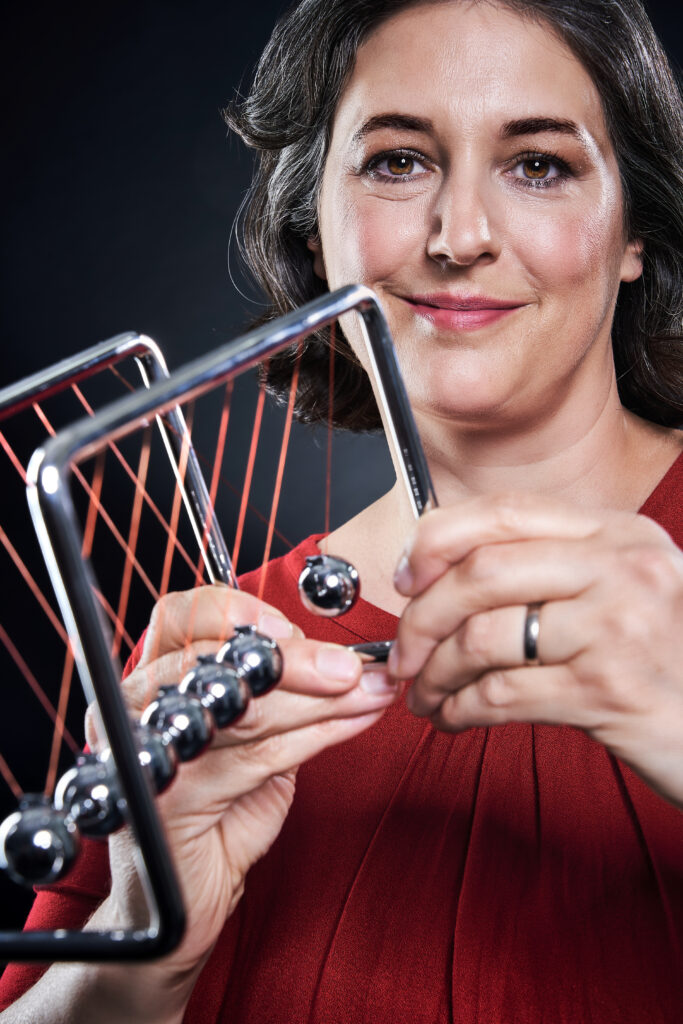Steered by Luck and Light – Dr. Julia Veit in Portrait

In the centre of the laboratory is a complex apparatus connected to flashing computers. A strange crackling sound can be heard from them at irregular intervals. The sounds indicate that the neurones of the laboratory mice are active because they are exposed to a special light. An unusual experience for outsiders, but everyday life for neuroscientist Dr Julia Veit. As group leader of an Emmy Noether project, she is researching the central nervous system of mice at the Institute of Physiology at the University of Freiburg. More specifically, on interneurones and their importance for the transmission of stimuli in the brain.
The fact that she is now working on such complex processes in the brain is down to chance: „I originally studied computer science and only managed to write my thesis in the field of biological cybernetics due to a lack of money. I learnt that I would get a contract as a student assistant at the Max Planck Institute in Tübingen if I wrote my thesis there.“ The project manager, who would later become her doctoral supervisor, asked her just one question during the interview: „Can you programme? Her answer: „Yes, I can.“ As a research assistant, she worked on studies about coding faces in monkey brains, which gave her access to an „incredibly valuable data set“. Fascinated by the fact that she was able to work with such unique information from animal brains, she continued her research as a doctoral student at the University of Fribourg in Switzerland. After successfully completing her doctorate, chance came to her aid again. She learnt of a vacant postdoctoral position at UC Berkeley, where scientists were working on a new and groundbreaking research method: optogenetics.
Optogenetics uses light to control the activity of nerve cells with extreme precision. To do this, Veit and her team illuminate the brains of laboratory mice with light of a specific wavelength. As soon as the light is switched on, selected groups of interneurons react at lightning speed, by either activating or inhibiting the transmission of stimuli. The potentials for action that the cells fire in response to visual stimuli can be visualised on the computer. Using the results obtained from this, she can draw conclusions about the functions of interneurones and investigate how various subcategories influence the processing of visual stimulus in the brain.
Veit’s career to date has been characterised by many challenges, including her pregnancies in the USA and Germany, a nerve-wracking slipped disc, the coronavirus pandemic and the difficult search for accommodation in Freiburg. In her current role as group leader, she is responsible for an entire team, the laboratory, and „also has to deal with the German bureaucracy and its hurdles“. However, the biggest challenge still lies ahead of her: the next application phase in two and a half years‘ time. This is because, as with almost all academics without a permanent professorship, her current position at the university is temporary.
A move to the private sector because of the uncertain conditions for a permanent professorship? Not an option for Veit. She wants to stay in the university environment. Only here, she has the opportunity to pursue questions and problems that have remained unresolved in her field of research for more than 30 years in some cases. She not only wants interested students to participate in this process, but also explicitly encourages female students to go into research themselves. […] „Even if the abundance of data and complicated calculations in systematic neuroscience may seem daunting at first, the experience shows that dealing with it is not witchcraft – and certainly not dependent on gender.“


Portrait by Clara Larberg
Clara Larberg is doing her Master’s in Media and Cultural Research. In the couse of her studies, she realized that academic writing was not really her thing – journalistic and creative writing, however, all the more so. In the future, she hopes to combine journalism with exciting trips to different countries. Until then, Clara is devoting herself to other passions. She experiments with new recipes from various international cuisines, travels around the world on a low budget and spends sociable evenings with friends (e.g. watching Tatort).